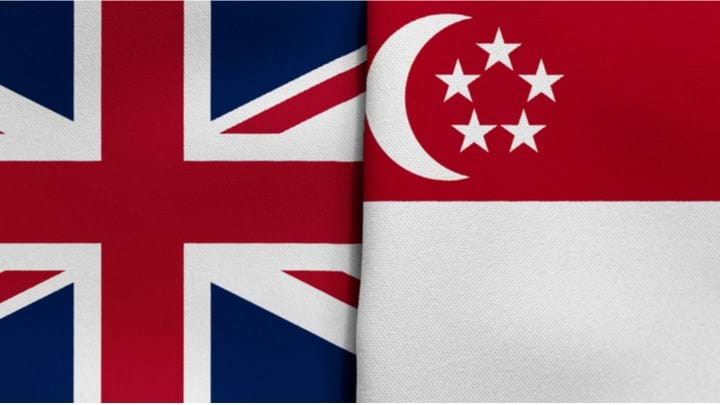Singapore and UK to address climate change in the ASEAN region

RESEARCHERS in Singapore, in a first-of-its-kind international collaboration, are partnering with the UK’s COP26 Universities Network, aiming to address climate change in the ASEAN region.
According to the UK Government, this partnership comes at a time when Southeast Asia is recognised as one of the most vulnerable regions to climate change, with four ASEAN countries amongst the top 10 adversely impacted by climate change effects. The countries are already collaborating through SG-UK Partnership for the Future, under which they restate their commitment of expanding cooperation that will mutually benefit the countries’ prosperity and security.
Working together, the Universities Network and research centres in Singapore will develop four reports providing policy recommendations for climate action in the ASEAN region. The Universities Network is a growing group of more than 70 UK-based universities and research institutes working to raise ambitions for tangible outcomes at this year’s UN Climate Summit in Glasgow, and beyond.
The reports are expected to support policy development and the UK’s international COP26 objectives in Singapore and across Southeast Asia. They will focus on:
- Adaption and resilience – Led by the University of Glasgow, UK and the Earth Observatory of Singapore
- Energy transition – Led by Newcastle University, UK; the National University of Singapore (NUS) Energy Studies Institute; and the Institute of Southeast Asian Studies’ Yusof Ishak Institute
- Green finance – Led by Imperial College London, UK and the Singapore Green Finance Centre
- Nature-based solutions – Led by University of Nottingham, UK and the NUS’s Centre for Nature-based Climate Solutions
The reports are expected ahead of COP26, the 26th UN Climate Change Conference, to be hosted by the UK, in partnership with Italy, in November 2021.
The effort will bring together leading researchers in the UK and Singapore, as well as other international academic partners. Together, they will address opportunities and innovation challenges to help shift towards a lower carbon and sustainable economy in ASEAN countries.
According to the UK Government, as COP26 President, the nation is committed to working closely with like-minded partners across the world and in multilateral groupings such as G7 to accelerate climate leadership through ambitious nationally determined contributions and long-term strategies, and real-world climate action.
Kara Owen, British High Commissioner to Singapore, said: “We all know we will get nowhere on climate change without the most effective international collaboration. This is at the heart of the UK’s COP Presidency. Our desire to accelerate the transition to a more sustainable future is also driving our science and research partnerships. The SG-UK Partnership for the Future rests on our two countries tackling priority issues in a way that makes a broader difference. I am pleased to see researchers in Singapore join the growing family of COP26 Universities Network.”
Lim Thuan Kuan, Singaporean High Commissioner to the UK, commented: “The joint reports will not only enhance our science and innovation collaboration under the Singapore-UK Partnership for the Future, but also our understanding of the challenges and opportunities arising from climate science and policy-making in the ASEAN region as we seek to transition to a greener economy.”
Alyssa Gilbert, Chair of COP26 Universities Network, said: “It is really exciting to see UK and Singapore university experts pool their skills to provide solution-focussed evidence to our respective governments at this key moment for climate action.”
The project was jointly commissioned by the UK Science and Innovation Network and the Climate Change and Energy Network, based at the British High Commission in Singapore.
The announcement of the partnership followed the day after COP26 President Designate Alok Sharma called on the academic community to help deliver strategic aims for COP26, in his address at the COP26 Universities Network Climate Exp0, on 17 May. Taking place 17–21 May, the climate Exp0 is a showcase of the latest thinking and most relevant UK and international research in the run up to COP26, around the topics of Adaptation and Resilience; Finance; Green Recovery; Mitigation Solutions; and Nature-based Solutions.
Recent Editions
Catch up on the latest news, views and jobs from The Chemical Engineer. Below are the four latest issues. View a wider selection of the archive from within the Magazine section of this site.




